I sit on the bus, and I type this spontaneously.
It’s currently 4:02PM on Wednesday, December 5th, as I start to write, and I boarded this bus around 11:00AM—yesterday. I’ve been sitting here for over 29 hours and, predictably, I feel pretty good. I’ve said it many times before, but I do love these buses. We’re currently somewhere in Central Spain, and heading south. I was just settling in for a nap, probably my 6th or 7th of the trip, and I began to think out my next blog entry, and my travels ahead. Instead of thinking, I pulled out the laptop, and into a Word Document, I begin to type.
Good god, my life is great, and good god, I am spoiled.
I spent the last 8 weeks in Europe, and in the context of my trip, it was really just some lukewarmly anticipated logistical hiccup en route to the weirder and wider. I wanted Iceland, I wanted a few of the Scandinavian countries (albeit in the summer), and I have friends, old and recent, in the area. So, for the last 8 weeks, I passed through Iceland, Sweden, Finland, Estonia, Denmark, Germany, an afternoon in Switzerland, a night bussing through France, and will arrive in Southern Spain in roughly 7 hours, where I’ll spend a few days organizing my things for North and West Africa.
For the past 8 weeks (save 3 nights), I was exclusively staying with friends and CouchSurfing. To date, I have stayed with 23 different friends/families/CouchSurfing hosts, and will arrive at my 24th this evening. In the past 8 weeks, I stayed with:
Ahmad in Reykjavík,
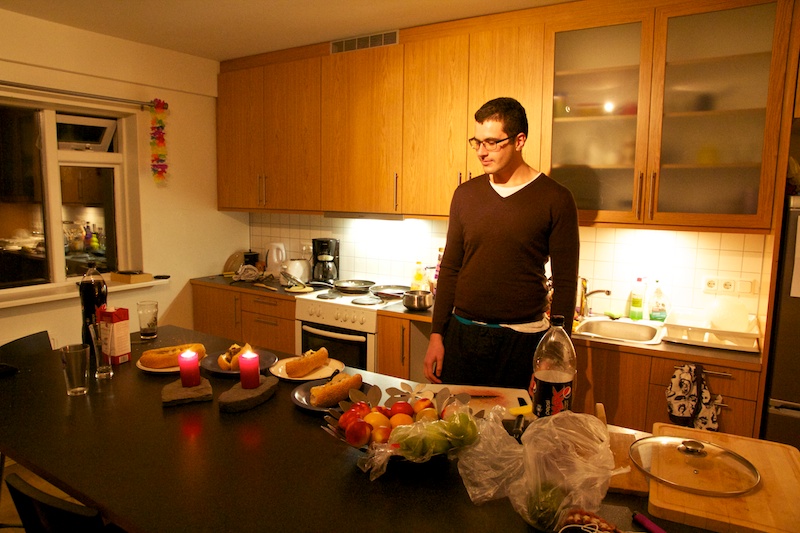
Petra in Helsinki,
Steve in Konstanz,
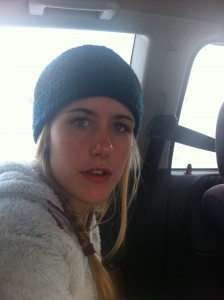
First, I’d just like to say one more massive thank-you to everyone that hosted me, fed me, and helped me along the way. To Ahmad, for the Skyr and oatmeal; to Alex Weisler, for hooking me up with Ahmad in the first place; to Grace, for the ticket to the erotic fair; to Jesper and Jennifer; for the epic Swedish-everything dinner that first night; to Jennifer’s parents, for the home-cooked meal a few nights later; to Tobias, for buying the Djurgården tickets; to Yonnas, for the hamburger and the go-karting; to Petra, for hosting me for a week after meeting me for under 2 hours in a hostel in Kenya roughly 10 months prior; to Patrick, for the pancakes; to Henri, for inviting me over and tossing me beers as I sat on the couch and watched ice hockey for the first time in almost a year; to Ninni, for hosting the birthday party; to Hannah, for the burritos and wine; to Kadri, for that great night out and the Bob the Builder bed covers; to Kadri’s mother, for the gorgeous breakfasts of meat, bread, cheese, tea, and backyard apples; to Vivian, for letting me stay over when I couldn’t get back home; to Piet, for the dubstep, pasta and guided tours; to Piet’s family, for having me over for a we-basically-only-make-this-stuff-on-Christmas-but-figured-you-being-here-was-a-special-occasion dinner; to Zach Realberg, for putting me in touch with Piet; to Christina, for inviting us to the uni-party; to Yovin, for scooping me up from the Berlin Last Minute Couch group, when I posted admitting that I was lazy and didn’t send out couch requests; to Steve, for putting up with my shit for a week, grabbing my Malaria meds, taking me to Thanksgiving dinner (a big thanks to all of Steve’s friends who cooked as well) and to Zurich with his classmates; to Daniela, for the chai tea, the tour of Heidelberg, the ice skating at the Christmas Market and kayaking down the Rhine, and showing me An Inconvenient Truth for the first time; to Daniela’s mother, for going far above “above-and-beyond” on three consecutive dinners, for helping me strap the kayaks to the car, and for the liquor and the Gluhwein. To all, I am truly, massively appreciative of your help and kindness, and if you ever need help with anything, anywhere and anytime, I’d love to try my very best to help. I sincerely hope to see you all again, and have few doubts that I will. The world is tiny—peanut-sized.
Next, I turn sour. The weather was cold and gloomy, although I knew this would happen. I wasn’t outside all that much, and I like being outside. I mostly spoke English, I didn’t wear my headlamp, and, in 8 weeks, I may have sweat twice. To arrive at my next destination, there was always a plane, always a train, and almost always a bus. I ate dinners with a napkin in my lap, showered twice daily, and even as a backpacking couch-bum, I lived quite an elegant life—a life I wouldn’t quite call challenging. While backpacking in Europe is a blast, this wasn’t my first such sojourn, and if asked if I was out of my comfort zone, I’d timidly squeak out a “no.” In summary, while I did have a phenomenal, irreplaceable experience in the last 8 weeks, I look forward to more of a challenge; I look forward to what comes next.
What does come next, you ask?
What comes next is what I anticipate to be ~4.5 months in North and West Africa. I’ll be doing some volunteer work in Guinea for about half the time, and traveling through what I hope to be Sierra Leone, Libera, Guinea Bissau, and Senegal for the remainder. This was never in the original plan for the trip, but a few months ago in a hostel in Northern Chile, as Clare cooked stir-fry and Philip and Laura kept her company, I started reading some kid’s blog about hitchhiking across the Sahara Desert and traveling about, and the idea was born. I’d get to return to Africa, which I don’t feel I got nearly enough of at the start of my trip (6 weeks between Kenya, Tanzania, Rwanda, and Uganda), speak French (my French used to be strong, currently isn’t, and I’d like it to be once more), and settle down in one spot (I’m meant to be helping to teach English in a university in Kankan, Guinea for ~10 weeks), and get to know some people.
So, what actually comes next, you ask?
The real answer is this question is that I don’t have a f*cking clue. Since I’m attempting to swear off airplanes (I’m currently somewhere in the south of Spain, and haven’t taken a plane since arriving in Stockholm), I’ll be making the trip to Guinea overland. So, in a few days, I’ll take the ferry from Tarifa, Spain to Tangiers, Morocco, and then take the train to Rabat. Once there, I’ll pick up visas for Mauritania and Guinea, hopefully, and continue southward. I don’t really know how I’ll go, actually. There are maybe trains, maybe taxis, maybe buses, and there may be some hitchhiking to be done. The author of the blog I read, Eric, road on the roof rack of someone’s car through the desert, so that’s always an option too.
Between Morocco and Mauritania, somewhere near the border, there’s a minefield. When you think of minefield, you’re probably thinking of explosive mines that detonate when touched. When I say minefield, well, that’s what I mean too. That’s there. I don’t see it being an issue, since I think the guys that recently put the road through the desert kept it in careful consideration, and paved around. But, in any event, there are live mines to be avoided.
The truth is, I really don’t know much about this Sahara Crossing, and I’m assuming, as usual, that I can just figure it out when I get there. I hope so, anyway. I have my meds, warm clothes, and some seemingly wicked CouchSurfing hosts lined up for Rabat, Casablanca, and Nouakchott. It will be very interesting, at the very least.
For more about the experience to come, I quote from a site I sometimes like. My journey may be milder than this, and it very well may be more intense. I really have no idea. The passage quoted below is a bit long, and maybe a bit Hollywood, but I do think it piques the interest. It certainly piqued mine.
From www.travelindependent.info:
“Travelling for the sake of travelling and seeing as much of this kaleidoscope of a world we all live in is about all the reason most of us ever need to travel. Variation is always the inspiration. It’s amazing at just how different (and of course similar) life is across the globe. It’s a great feeling to know this first hand and at least get a foot on most of the world’s regions. With this in mind, West Africa with all its known mystic, alluring place names and sense of adventure is somewhere ignored… or perhaps just forgotten. Tucked away in a corner, way off any round-the-world ticket and just waiting to be explored. For most English speaking travelers it’s way down the list. Let’s be fair it’s hot, on the whole comparably expensive (certainly to fly to) and with few noteworthy attractions. What you’ll read about West Africa – the crime, disease, conflicts, poverty and lack of infrastructure – might also worry you in a certain measure. Having noted all this, many are still very much attracted to the region and what they imagined will be a lot of virgin ground, few travelers and many of those friendly African smiles encountered so many other places on this dark continent.
Okay where to start? Firstly, and taking nothing away from the fact everyone should visit this incredible (for many of the wrong reasons) region – French West Africa from a budget independent travel perspective is on the whole not fun, not easy, not cheap and certainly no picnic. Whatever the complications of getting around, basic facilities, lack of tourist infrastructure, etc., anywhere else in the world they are magnified ten fold in French West Africa to a point that in many cases goes way beyond enjoyable, particularly if your knowledge of French is not good enough to get the best from the region which is often the people. Add this to some pretty unforgiving weather and you have a real challenge of a trip on your hands and no holiday. A good sense of humour and attitude helps immensely, but at times you’ll need an extraordinary sense of humour as routine situations like getting around, sleeping or crossing a border can go way beyond funny.
A great if some what circumstantial example, is that when travelling worldwide and socializing with other travelers, stories always get shared or re-told. Tails on funny, dangerous or unbelievable experiences. These are almost always second hand, normally third hand and occasionally you’ll recognize them as directly out of the Lonely Planet! When in West Africa you’ll have the same conversations with other travelers you’ll meet, yet almost all of the stories are told about first hand recent experiences. Stories such as a one day bush taxi journey taking three, being kept for a day incorrectly at an airport in the hope of a bribe, being dumped on the road side at one AM, waiting four hours for a sandy omelette in a restaurant, waiting endlessly for a bush taxi to fill up… the list goes on. It’s very much West Africa – for every good there are a thousand complications and when sitting in the midday heat, on a hard bench, covered with flies surrounded by children in an awful state and waiting for those three bush taxi seats to fill up having been there at seven that morning – it makes you think hummm, this is past an experience and really not that much fun. But of course it is an experience and whereas these experiences are more frequent and less pleasant than travel in other parts of the world you just need to see it in retrospect and understand they make up as much of a part of travel as seeing any famous monument. It’s West Africa – just be prepared, have a healthy budget and don’t under estimate the fact you are in the world’s poorest region where things are done differently and life is very, very different to the rest of the world – only parts of the Asian Subcontinent even come close, but at least they are fairly well set up for tourists and cheap – French West Africa comparatively speaking is not.”
This is the picnic I’ve chosen.
At the present moment, I sit just inside the deck of my friend Brisa’s house–her palace, even. On the other side of this window, there’s a large porch–plus swimming pool–with a gorgeous view of Gibraltar, the bay, the beach, palm trees and cargo ships, and a tanned coastline of decadence and deep breaths. Some people, many even, would call this a paradise.
So, instead of this, why do I choose the picnic above?
Again–I don’t know. I’m probably dumb, probably masochistic, probably confused and probably misguided. That’s probably the truth. But the way I feel is that I want a challenge. I want to go where not many others go, and see what not many others see. I’d like to function without any English whatsoever. I’d like to push myself, and see what I, the kid who generally has an answer and a pump-up speech for everyone and everything, can actually handle. Lastly, I’d like to get closer to the heart of this idea I cling so closely to: the idea that humans are really animals, and to live, we need food, water, shelter, and nothing more.
Above all, I just have this drive to go, to discover, and to show myself and others that you just don’t know anything if you haven’t seen it for yourself. I think it’ll be weird, I think it’ll be lonely, and I’m quite certain that carrying several thousand dollars in cash on my person at all times will be terrifying. But hey, you only live once, and I do need some adventure.
Wish me luck guys.
From paradise,
Will
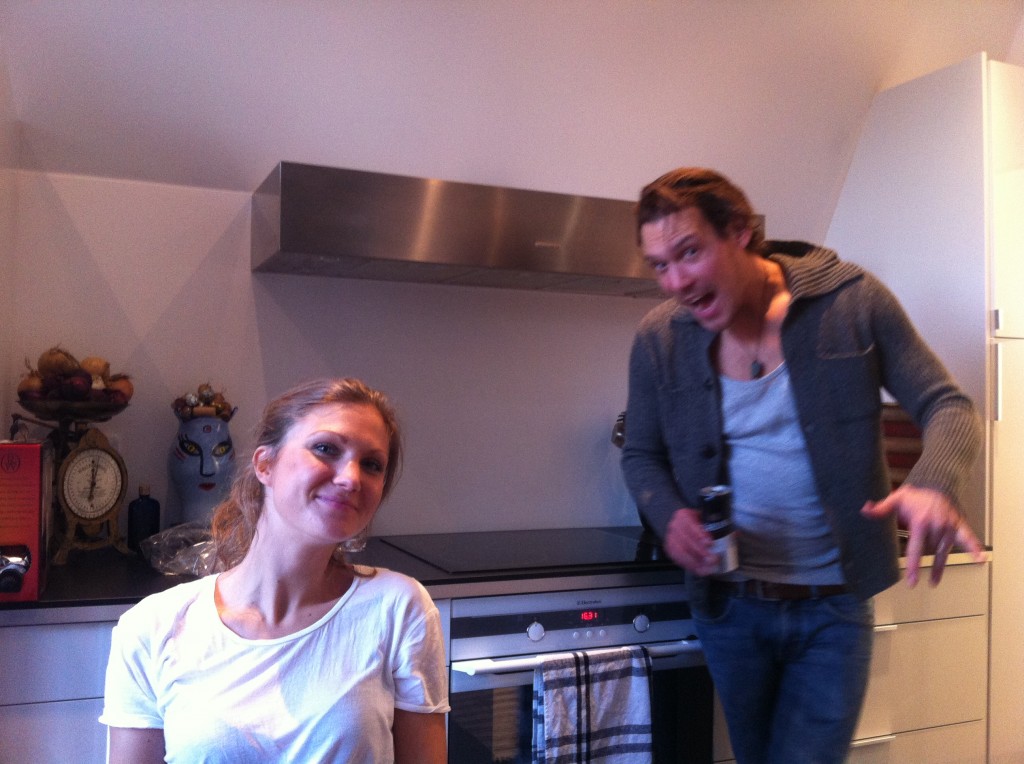
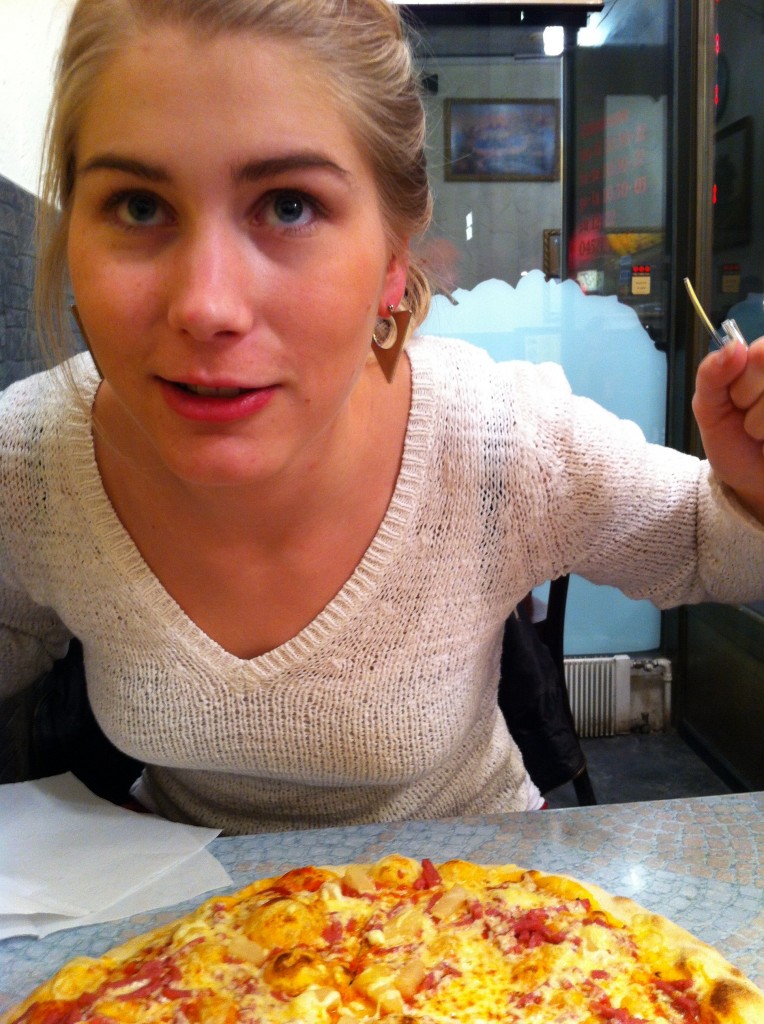
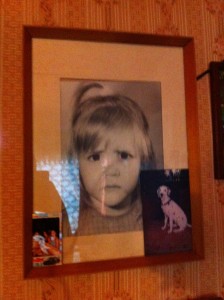
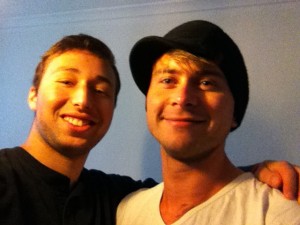
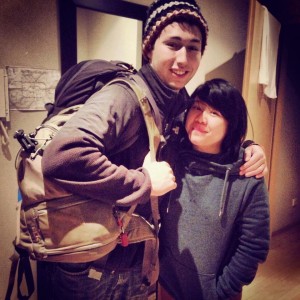
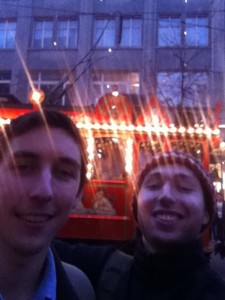
Hey Will–
In a bow to critical thinking, here’s all the nays about travel and travel writing taken from my travel writing syllabus. (We acknowledge all these and do what we can to counteract them, but we DON’T stop traveling!)
Some Assertions Proposed by Holland and Huggan and Lisle:
First of all, know that all three scholars are “social constructivists,” believing that “discourse” shapes who we are as well as our material reality. These scholars use “discourse” in the broad sense of that term to mean all cultural forms coming to us through language. They accept Foucault’s notion of discourse in that it contains–at the same time–repressive formations of powe,r and resistant formations to that power. In other words discourse shapes our material existence, and we shape our material existence through discourse and our actions based on discourse.
Holland and Huggan argue that–
–Travel writing aids in the commodification/Disneyfication/trinketization of culture through its promotion of the business of tourism and its consequent reduction and distortion of cultural forms.
–Travel writing can reproduce a foreign world as an object of western knowledge; it can be blind to the cultural filter through which “others” are judged.
–Travel writers focus on self growth is at “others” expense; the other becomes a mere backdrop for a personal quest.
–Travel writers often assume universal human freedoms and mobility in spite of privileges of gender, race, class, nationality, political freedom. They do not recognize their often exceptional position in their narratives.
–Tourism causes ecological damage and destroys indigenous cultures.
Lisle argues that–
–Travel narratives do not use meta-narratives to comment on their construction or perspective. They are too often written from a disingenuous “neutral and objective” vantage point.
–Too much travel writing ignores political and economic conflicts in the country visited. This depoliticized discourse paints an unrealistically optimistic picture of the country observed.
–Travel writing does not acknowledge any ethical or political responsibility to the “other.”
–Travel writers too often present national boundaries as stable geo-political entities, ignoring the complex, contingent formations of power they are.
–Travel writing does not allow others to speak for themselves or define the terms for cross-cultural encounters
–Travel writers promote a linear, progressive understanding of history in which our country/civilization is at the apex of human development and others should aspire to it.
–Travel is depicted as an apolitical practice.
–Travel writing too often ignores important rhetorical considerations such as WHO is framing communication, WHO is receiving messages and WHO is bring written about.
–Travel writing legitimates new forms of global exclusion, dominations and violence, perpetuating the same structures of power that lead to child prostitution, environmental destruction and terrorism. One way this legitimization occurs is through the construction of false dichotomies (binaries) such as
Safe “home” vs. dangerous destination
Stable states (nations) vs. disputed national boundaries and internal areas of conflict
Stable citizens vs deracinated peoples uprooted in a globalized economic world
Equality vs hierarchy, exclusions, lack of social justice
Powerful benefactors vs helpless victims
Observer as separate from observed; economic, cultural, historic, racial, gender ties, dependencies and conflicts ignored.
Fight the power and happy travels!!